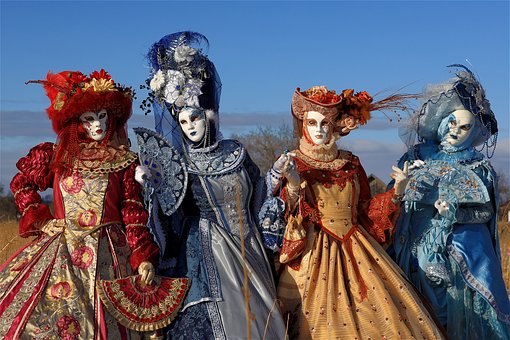In the last dozen years, it has become a common practice for foreign citizens, mainly from Western Europe, to come to Bulgaria and stay here permanently. They are rarely employed, most of them are pensioners. They come here to visit friends, they don't know the language, but at some point they decide to stay...temporarily or permanently. Why? – is the main question. What makes them leave family and friends, everything familiar and familiar and embark on this adventure? Aren't they afraid they won't make it mostly because of the language barrier?
You will see different points of view, a different way in which foreigners of the same nationality perceive Bulgaria and Bulgarians - different both from our perceptions of ourselves and among themselves. Some of them I know personally and have communicated enough to get to know them. I will also tell you my point of view.
DONATELLA VARNIER
"I arrived in Varna in October 2017 with my husband Giuseppe. We chose Varna because in Bulgaria, unlike many European countries, the cost of living is lower, including those in Italy. - says Donatella. The initial feeling they felt coming to Varna was positive: a city that offers them the services they need. The city is not dangerous, healthcare works.
"The relations I had with the Bulgarians taught me not to trust when it comes to contracts, etc. What I notice in Bulgarians is a little initiative, laziness to learn new and different things. What I really don't like is seeing the city dirty, lacking the necessary care from the people. I see garbage in every corner of the city; furthermore, there is no separate waste collection. The decor of the neighborhood and the home are important to us. Leaving Varna by public transport (trains and buses) I felt as if I had returned to the post-war period. Here I miss the good taste, the beauty, the way of eating, the closer and warmer contact we are used to, the smiles, the shouts of the people, the noise. I have a different relationship with the Bulgarians than with the Italians. But I respect the people and the country and I expect the same, but I have no claim to anything more."
Donatella is not sure if she will return to Italy in the short term. Of course, if there is an opportunity I will do it. Now that he lives here and has no work commitments, he can plan his days as he likes. He regrets that he does not yet speak Bulgarian and therefore avoids going to the theater or the cinema. But he will try to learn it.
ORIETA ARMILIATO
Orieta comes to Bulgaria in 2020. He chooses Varna because his son Davide starts working as a producer at the State Opera - Varna. She likes the sea capital. She leads a healthy life, enjoys the greenery that surrounds her from everywhere, the wonderful churches and buildings, the museums. She is impressed by the cultural events organized in the city. He has a great relationship with the locals.
When I asked her what are the main differences between people in Italy and Bulgaria, Orieta answered me like this: "Even people of a certain age here in Bulgaria have a fairly high general culture, and in Italy there is a lack of a better literacy process... and this determines the difference in everything else, for better or for worse.' Orieta also shares interesting impressions about the Italian community here. "The Italian community, at least here in Varna, where I live, mainly consists of groups that have formed over the years and that are culturally, politically and socially homogeneous. I have to admit, however, that there are some unwritten rules that are strictly enforced: either you adapt to these, let's call them micro-communities, or you stay alone…. personally I prefer to stay away from these kind of communities. I have formed healthy bonds and friendships with people who, like me, do not want to fit into community norms. I would like to communicate more with Bulgarians, I try to do so. It's easy when some of them speak Italian or English. Bulgarian is very difficult and complicated for me, the alphabet is different, the pronunciation is radically different from Italian... However, I try to read and speak so that I can communicate," Orieta concludes her story.
Although he likes it here, he has parents, brothers and sisters in Italy and visits them regularly. When he is in Varna, he tries to be active in his daily life. She says she is curious by nature and is always looking for something: new little shops, visiting an exhibition or the theater. "Life is bubbling here, there are enough cultural events that are a prerequisite for the growth and development of the city and the people, hopefully it will continue."
From the author's point of view: I have known Orieta for several years. Extremely dynamic, she is full of energy and desire for life. Always smiling and positive, ready to help anyone in need. He feels at home in Varna, but he always approaches the country and the people who have given him a second home with respect. He tries not just to live here, but to get to know and understand our culture and mentality. Her faithful companion is the cat and Olivia. Along with his son's work, he communicates with different people and sees a dynamic and interesting life, despite the language barrier.
© 2023 Iliana Dechkova

